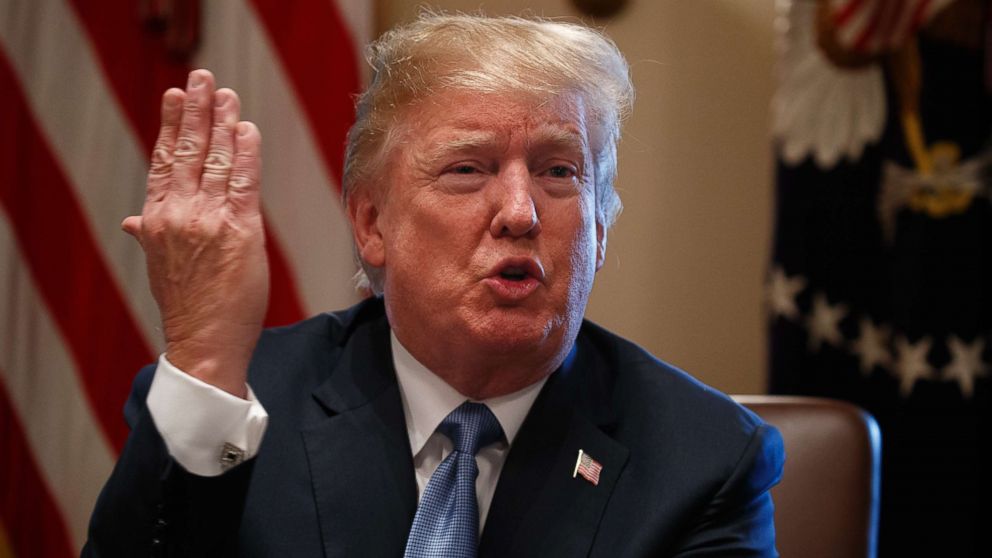President Trump calls travel ban ruling 'a great victory' for the Constitution
President Donald Trump Tuesday called the Supreme Court's 5-4 ruling upholding his order restricting travel from some Muslim-majority countries "a great victory" for the Constitution and a "tremendous victory" for the country.
"This is a great victory for our Constitution," Trump said of the decision upholding his presidential authority.
“The Supreme Court ruling was a tremendous victory for this country. And for the Constitution. The Supreme Court ruling was a tremendous victory for our country,” Trump said at the White House not long after the decision.
"We have to be tough and we have to be safe and we have to be secure," Trump said in a meeting with Republican members of Congress at the White House. "At a minimum we have to make sure that we vet people coming into the country, we know who is coming in, we know where they're coming from – we just have to know who is coming here."
In an earlier paper statement, the president described the ruling as "a tremendous victory for the American People and the Constitution" as well as "a moment of profound vindication,” taking aim at Democrats and the mainstream media who he said "refuse to do what it takes to secure our border and our country."
The travel ban upheld by the Supreme Court was the third attempt by the administration following more than a year and a half worth of legal battles with civil rights groups and federal courts who had succeeded in either reversing or rolling back provisions in the previous bans.
The current iteration indefinitely restricted most travel from the countries of Chad, Iran, Iraq, Libya, North Korea, Syria, Venezuela, and Yemen - describing those countries' vetting systems as inadequate. In April, the U.S. lifted travel restrictions on Chad.
Trump indicated he doesn’t have any plans to expand upon the current ban, despite his previous statements describing the order as "watered down" compared to the previous two.
“Do I want to go in with a different one and maybe a different variety? I don't think there's any reason," Trump said. "It's a very strong victory.”
Plaintiffs in the case, dubbed Trump v. Hawaii, argued that the third ban was merely an extension of the first proposed travel ban signed by the president one week after his inauguration, which sought to immediately suspend admission into the country by individuals from seven Muslim-majority countries. It also halted refugee admissions for 120 days and indefinitely banned Syrian refugees, but contained an exception for members of "religious minorities."
Democrats have argued that first ban, with its surprise rollout and rocky implementation that initially drew protests and chaos to several airports across the country, was a direct descendant of the president's campaign promise calling for a "complete shutdown on Muslims" coming to the U.S.
But Chief Justice John Roberts, in siding with the administration, said the latest ban fit within the president's broad national security powers regarding immigration admissions to the U.S., and that the plaintiffs did not demonstrate "a likelihood of success on the merits of their constitutional claim" to overrule the president.
Attorney General Jeff Sessions praised the ruling saying that although the administration has been respectful of lower courts and legal opinion, they do not get to set policy.
"So we're very pleased with that outcome today and hope this goes some way to ending the practice of these broad nationwide injunctions which in my view gravely threaten the rule of law," Sessions said.
ABC News' Luke Barr contributed to this report.




